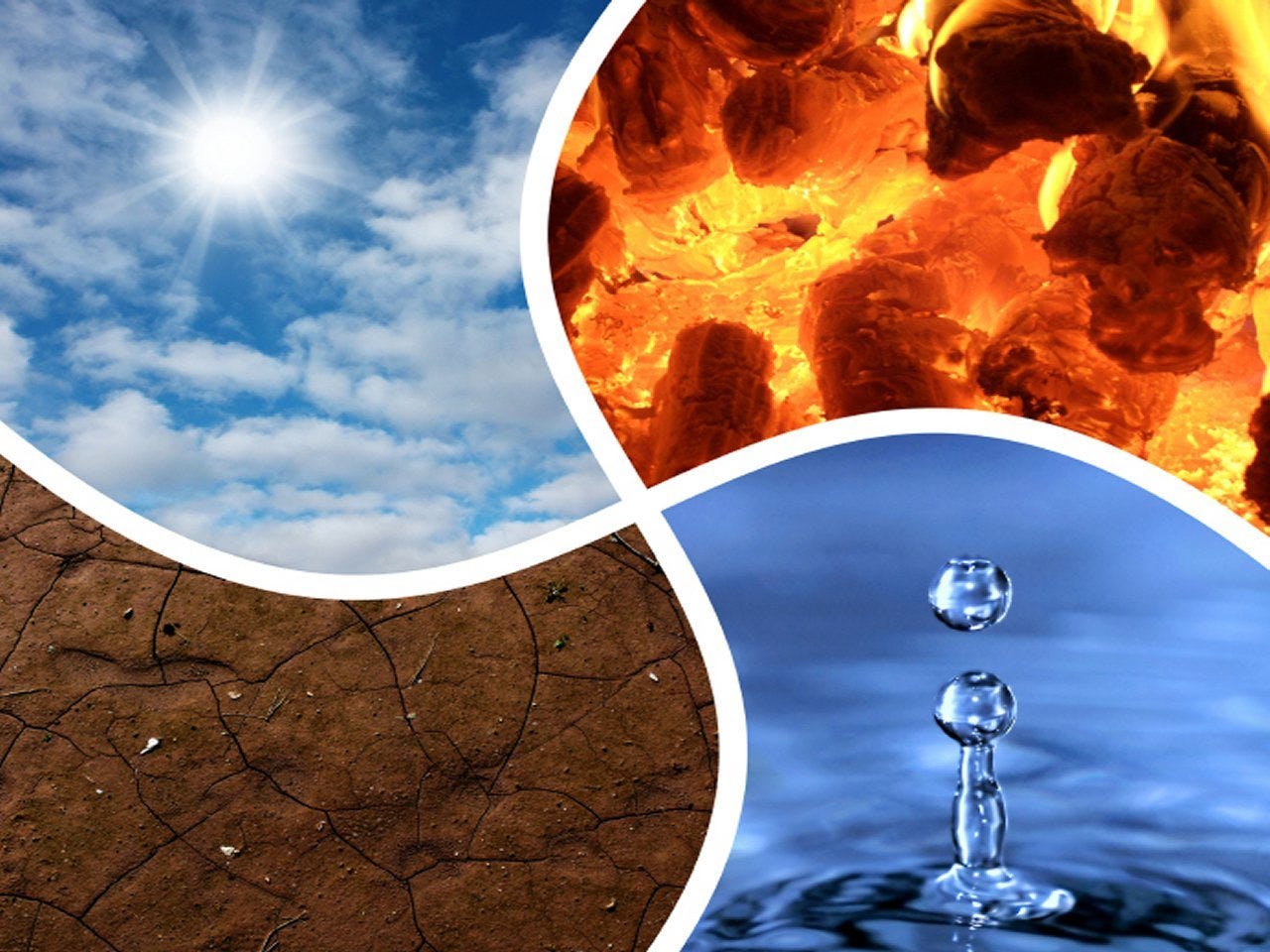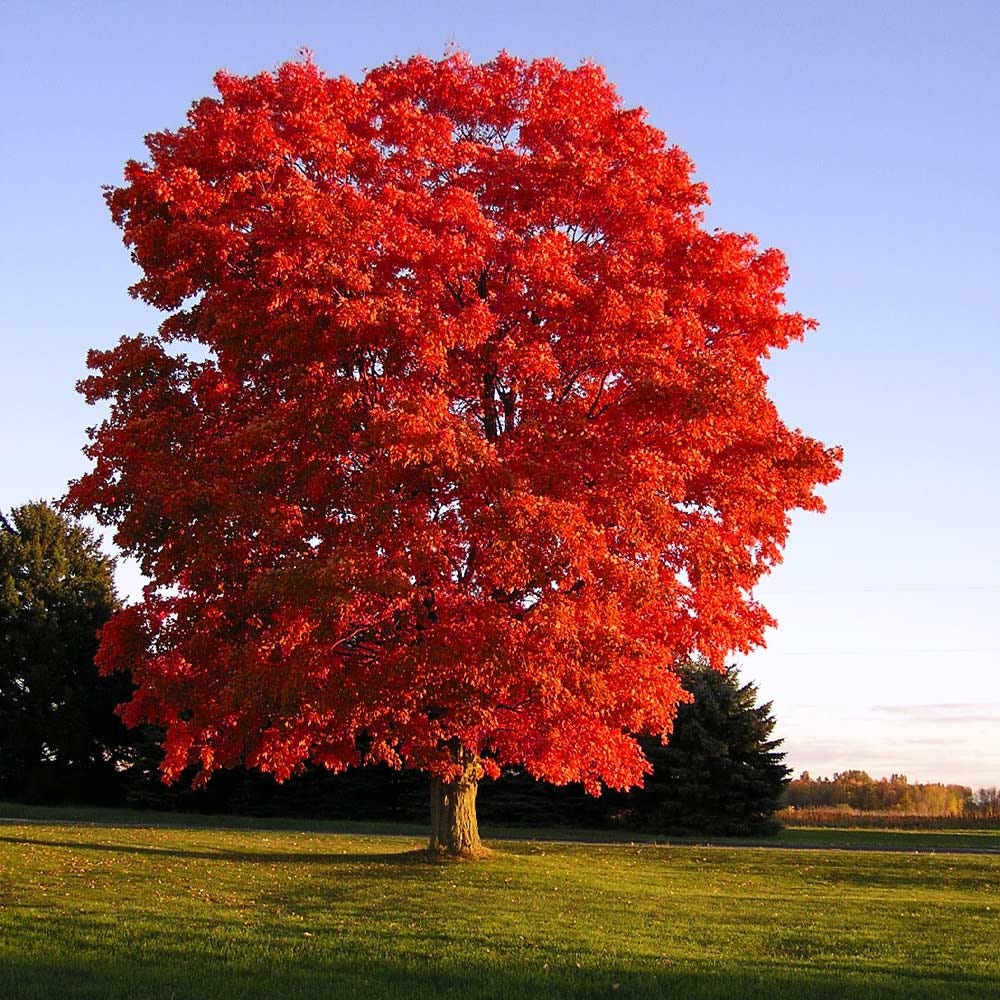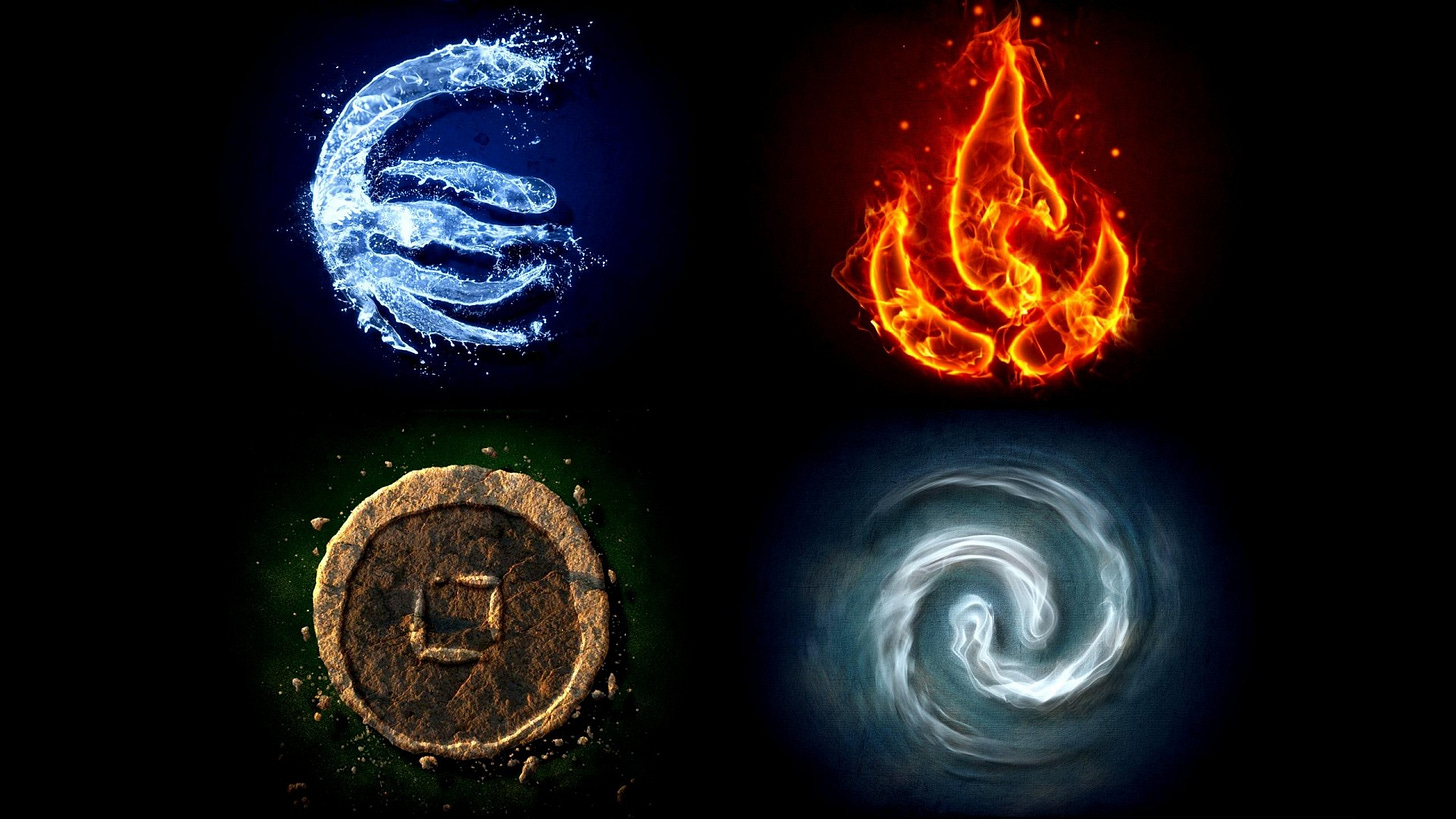Theory of the Four Elements Finally Refuted!
Sometimes I wonder about how people used to understand the natural world, and whether they noticed the flaws in their understanding.
The Theory of the Four Elements
In ancient Greece, the orthodox theory of “chemistry” was that the physical world is composed of four elements. Earth was the heaviest element, followed by Water, followed by Air, followed by Fire. This explains why dirt sinks in water, why air bubbles rise in water, and why when you light a flame the flame points up in the air. Aristotle introduced a fifth element, “ether”, which the heavens were made of.
Apparently, a scheme of roughly the same four or five elements was popular in other cultures, including African, Japanese, and Native American cultures (https://en.wikipedia.org/wiki/Classical_element). It’s popular to have “void” in place of ether.
Of course, that is 100% wrong. None of those things is an element. (Most pre-modern theories are hopelessly wrong.) But this was a widely accepted theory for many centuries – roughly from ancient Greece till the Renaissance. Why?
I suppose that part of why the theory was intuitive was that these “elements” correspond to the three states of matter (solid, liquid, gas), plus energy (fire). That’s a natural way to divide up physical phenomena. And I suppose that “earth” seemed like the fundamental type of solid matter simply because there is so much of it. Similarly for water and air. And fire is the most obvious representative of energy. So it’s kind of understandable. (?)
It was in the late 1700’s and early 1800’s that people finally figured out for sure that water wasn’t an element. One experiment, due to Lavoisier, produces water by combining two gases, then known as “inflammable air” and “de-phlogisticated air”, and basically burning them. Another experiment, from Nicholson and Carlisle, decomposes water into those same two gases, basically by applying an electric potential difference to the water. It was after that that inflammable air was renamed “hydrogen” (water-maker) and dephlogisticated air “oxygen” (acid-maker).
These refutations of the 4-elements theory required somewhat modern equipment, though. If you went back in time 1000 years, I wonder what would be the best low-tech refutations you could give people of the 4-elements theory?
Where Do Trees Come From?
I was walking in a park once, looking at the trees. I noticed that there isn’t an indentation in the earth around a tree; rather, the earth around the base of the tree bulges upward, presumably because of the roots.
So if you put a seed in the ground somewhere and leave it alone for 20 years (with no one coming to add any material nor take any away), when you come back, you’ll see a lot more material there. The tree is made of a lot of matter. Where did the matter come from? If there’s more than one source, what are the most important sources?
I wonder what pre-modern people thought about that. I don’t believe they would have said that the matter was just spontaneously created. I think they would have looked for a source of that matter.
Maybe the most natural initial guess would be that the matter mainly comes from the ground in which the seed was buried. But this can’t be correct, because of my observation above: the ground around the tree bulges upward. If the tree had been taking matter out of the earth and using it to make wood and leaves above the ground, there should be an indentation in the ground around the tree. Perhaps the tree is incorporating some of the earth into itself, but this could at most be a very small amount compared to the total mass of the tree. If someone had done careful measurements, they would have verified this.
Everyone knows that trees need water to grow, so maybe that’s where most of the matter comes from. Given just a little knowledge of modern science, though, you know this isn’t true, because trees are carbon-based life forms, and there is no carbon in water. (Of course there’s going to be water in the tree, but the important molecules are carbon-based.)
Is there a way that pre-modern people could have known this wasn’t the case? Well, some woods are heavier than water, e.g., oak or ironwood. And the overall lightness or heaviness of a material, in the theory of the 4 elements, is supposed to derive from the mix of elements in it, I guess. If the tree is made of a mix of all 4 elements, with at most a very small amount of earth (the only element heavier than water), then the tree should probably be lighter than water, and much lighter than earth.
If you’re tempted to say (relying on some modern theory) that maybe the little particles of matter are packed closer together when in the wood than they are when in their pure water, air, or fire forms, note that this hypothesis would undermine the theory’s ability to explain facts about what floats or sinks in the first place. (No matter what a given object was made of, the particles could then be packed more closely or loosely, leading to any desired degree of density.)
Anyway, the correct answer is: Most of the matter comes from air. Though carbon dioxide is very thinly distributed (only 0.04% of the atmosphere), the tree steals carbon from the CO2 molecules to incorporate into its own body, expelling O2. The tiny flow of carbon going into the tree accumulates over many years (plus smaller amounts of oxygen and hydrogen from the water) to form all that wood.
Why Is There Fire Down Here?
According to Aristotle, the natural place of the Earth element is, well, where the Earth is. That’s why when you pick up a rock and let go, it tries to go back down. The natural place of water is a little bit higher, followed by the air, then fire, then ether.
This makes one wonder how so many things get out of their natural places. Presumably it is because other forces (themselves having to do with the natural “functions” of things) move them. But how exactly does it work? Suppose you burn some wood. This causes the “fire” to escape from it and go up. I guess bits of fire go up into the atmosphere, becoming invisible as they move above the tip of the visible flame (you can still feel them if you hold your hand above the flame though). So there must be a lot of fire way up there, above the air. How do bits of fire ever get back down to earth, in order to get incorporated into wood and stuff? One would expect the fire to quickly accumulate near the top of the atmosphere. It’s unclear what other forces are supposed to bring it back down.
What Are Ice and Steam?
Since you can easily turn ice into water and then steam, and vice versa, I suppose people would have recognized that they’re the same substance. How would they have explained the differences? If the reason why things rise or fall has to do with “natural places”, as per Aristotle, would the natural places of ice, water, and steam somehow differ, even though they’re the same substance?
Where’s the Evidence?
If you asked people this, what would they say? As far as I can tell, the “evidence” for the 4 elements theory was always pathetic. E.g., its ability to “explain” the above facts about when things rise or sink is lame, because the explanation doesn’t require any of these substances to be elemental; it only uses the facts about their density. I suppose people thought the theory was good due to its “ability to explain” in a simpler way the composition of the physical world (by saying that all other substances are combinations of the 4 elements). But this is a poor explanation, because for any list of 2 or more substances, you could propose that all other substances are made from different proportions of the substances on your list. The explanatory strategy isn’t specific to the list “earth, air, fire, and water”.
Conclusion
As you might have guessed, the theory of the 4 elements is not a good theory. Why was it popular for so long? It seemed to depend on the willingness of philosophers and scientists to start from a vaguely plausible guess, then make no effort to test the guess, or even just ask whether something else might be true. Most people who received the theory probably did so based on authority. I guess it didn’t occur to them to question whether the presumed experts were correct. This didn’t even occur to the experts themselves.
It’s not totally their fault, though; they had no idea how difficult nature is to understand, how complex and subtle it is, and how often plausible guesses are totally wrong. They didn’t have the history from which we learned those lessons.
This makes one wonder, though, whether we have yet fully absorbed those lessons. What theories do we have today that people of the future will view as comparable to the Four Elements?





I'm sorry but... what's the point of this? Sounds like a young sceptic talking about something we already know.
Ridiculing the ancients for not knowing about modern findings and methods is ultimate childishness, and I'm pretty sure all of this was refuted way long ago. "Why was this theory so popular?" Like, was there anything else? Jeez.
It's because some people started to question the nature of the universe all those centuries back that we have these new explanations, duh.
This is very wrong-headed. Allow me to demonstrate and answer each of your specific objections.
1) You say that trees are "carbon-based" and that the water cannot account for that. But carbon itself could be water-based. As a spread out water, carbon is lighter and thus able to float on water. This fits our experience.
2) You claim that the tree matter comes from air, because the air is made of carbon. But since I've already shown that carbon could be made of water, isn't your objection defeated? No, sadly. Air is lighter than water and this implies that water can extenuated into air. Thus air is the base element for earth and water.
3) Then you bring up fire. Fire goes up and earth remains. Where does the fire go? It goes where you'd think: into the air. The heat given off is a temporary energy, which dissipates. But the matter of fire, is air escaping earth. Since we are jumping from earth to air and mostly bypassing water when we burn things, the change is not gradual and generates heat. (Although, I've heard tell of a distant Albion philosopher named "Faraday", likely a pun on the word "Faraway", who showed that a little bit of water comes from fire too and not only stale air.)
4) In any case, while mysteries of air remain to be explored, all the evidence you present is considtent with air being the fundamental element.
I stand with Anaximenes.